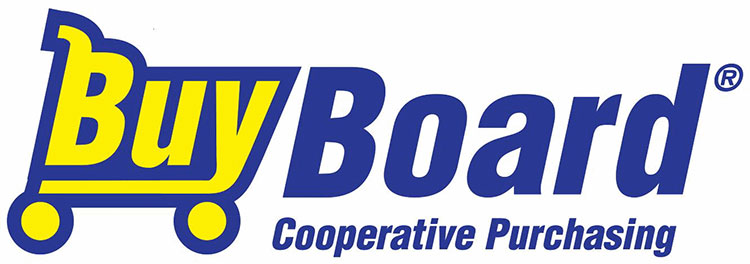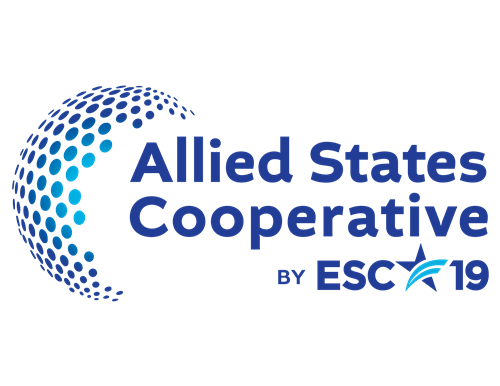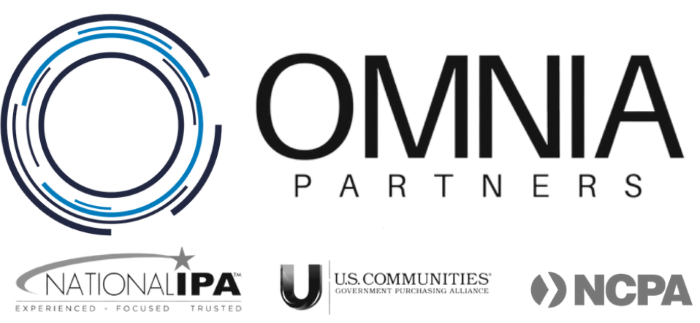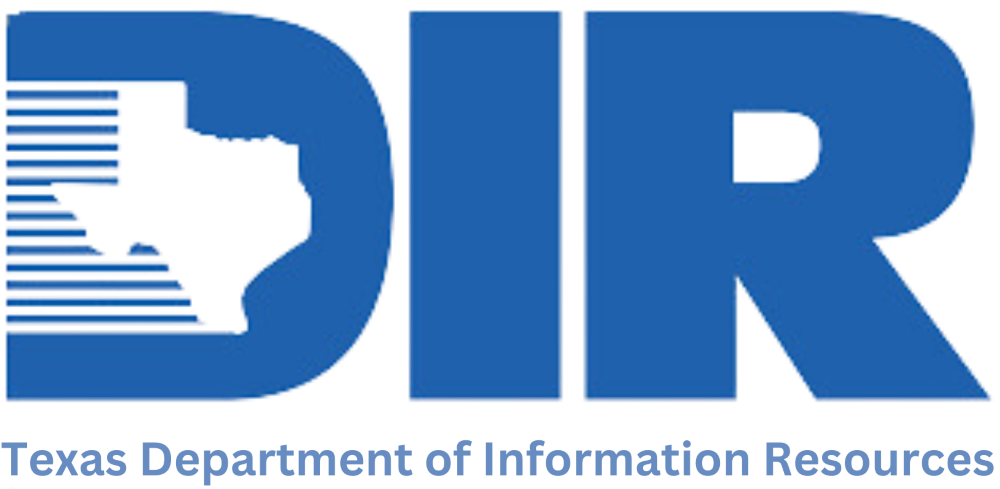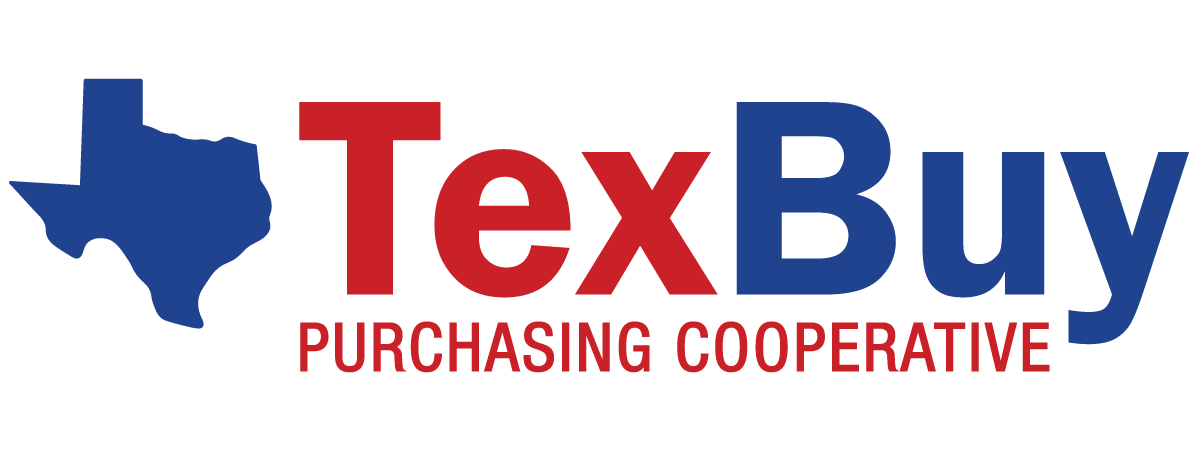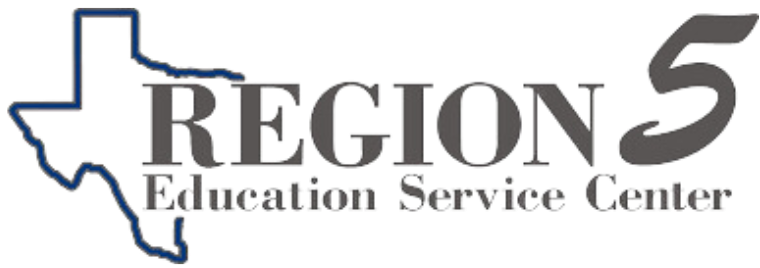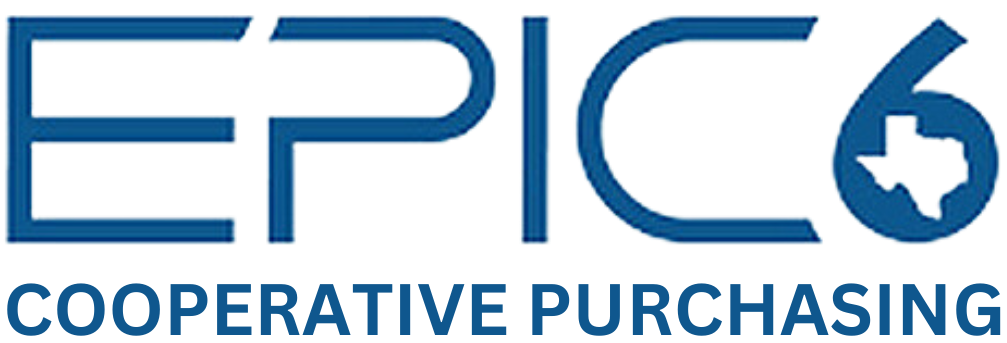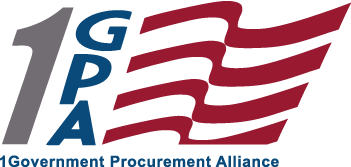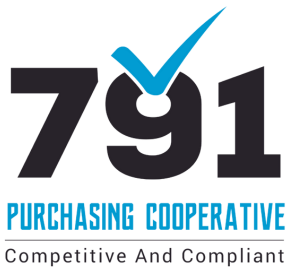What is purchasing cooperative?
A cooperative purchasing, also known as a buying group or purchasing alliance, is a group of organizations that come together to purchase goods and services in bulk. By pooling their purchasing power, they can negotiate lower prices from suppliers. Organizations like school districts, colleges, and governmental entities can save money on their operating costs by participating in cooperative purchasing programs.
School districts purchase goods and services in an efficient, cost effective and competitive procurement method as outlined in Texas School Law Bulletin, Sec. 44.031 Purchasing Contracts, and the Texas Government Code. Title 7 Intergovernmental Relations, Sec. 791 Interlocal Cooperation Contracts.
To use a purchasing cooperative, a school district must first join the cooperative. Membership is typically free. Some cooperatives involve paying a membership fee. Once a school district is a member, it can place orders for products and services through the cooperative. The cooperative will then negotiate the best price with the vendor and deliver the products or services to the school district.
Why school districts prefer using purchasing cooperative contracts?
Purchasing cooperatives can help school districts save money, improve their efficiency, and stay in compliance with the law.
- To save money: Purchasing cooperatives have a large network of suppliers. Purchasing cooperatives negotiate lower prices from these suppliers because they have a large volume of purchases. This gives school districts access to a wide range of products and services at competitive prices. This can save school districts a significant amount of money on their annual purchasing costs.
- To improve efficiency: Purchasing cooperatives can streamline the procurement process for school districts. This can save time and resources, and it can also help to ensure that school districts are getting the best possible prices for their purchases.
- To comply with regulations: Purchasing cooperatives have expertise in procurement law and regulations. They follow all federal and state laws when contracting with vendors. School districts that use these contracts are automatically in compliance with state and federal procurement regulations. The bid process can be complex and time-consuming, but purchasing cooperatives make it easier for school districts to stay in compliance.
Overall, purchasing cooperatives can be a valuable tool for school districts that are looking to save money and improve efficiency.
Benefits of Purchasing Cooperative Contracts
Cooperative purchasing contracts can be a valuable tool for businesses of all sizes. If you are looking for ways to increase your sales, improve your cash flow, reduce your costs, improve your efficiency, increase your visibility, and enhance your reputation, then you should consider participating in a cooperative purchasing contract. There are many advantages to being under a purchasing cooperative contract. Some of the most common advantages include:
How to Win Cooperative Purchasing Contracts
Cooperative purchasing contracts can be a great way for businesses to increase their sales and reach new customers. However, winning a cooperative purchasing contract can be competitive, so it’s important to do your research and prepare your proposal carefully.
Here are some tips for winning a cooperative purchasing contract:
1. Keep an eye on the bids.
Purchasing Cooperatives release bid solicitations infrequently. The contract period is typically 3 to 5 years. If you miss an opportunity, you may have to wait up to 5 years for the next one. Here are some ways to stay up-to-date on purchasing cooperative bid solicitations:
-
- Sign up for email alerts from purchasing cooperatives. Many purchasing cooperatives offer email alerts that will notify you when new bid solicitations are released.
- Follow purchasing cooperatives on social media. Purchasing cooperatives often post about new bid solicitations on social media.
- Attend purchasing cooperative events. Purchasing cooperatives often hold events where you can learn about new bid solicitations and network with other vendors.
- Sign up for eBid portals. Most purchasing cooperatives use eBid portals to manage the bidding process. You can register for free to receive automatic notifications of bid opportunities.
2. Research the cooperative purchasing organizations.
Before submitting a proposal, make sure you understand the goals, requirements, and types of businesses that each cooperative typically works with. Some cooperatives have a limited number of contracted vendors, while others have a large number. If a cooperative has a limited number of vendors, your chances of getting a contract are lower. Be prepared for competition.
3. Understand the bidding process.
Each cooperative purchasing organization has its own bidding process, so be sure to read the instructions carefully. In general, you’ll need to submit a proposal that includes your company’s information, pricing, and any other relevant details.
4. Compete on price and value.
When submitting your proposal, be sure to compete on both price and value. This means offering a competitive price and also demonstrating how your products or services can add value to the cooperative purchasing organization’s members.
5. Be persistent.
Winning a cooperative purchasing contract can take time and effort, so don’t get discouraged if you don’t win your first few bids. Keep submitting proposals and building relationships, and you’ll eventually be successful.

Popular Purchasing Cooperatives in Texas
1. BuyBoard
BuyBoard is a national cooperative that helps school districts, local governments, and nonprofits save money by negotiating contracts with vendors. TASB (Texas Association of School Boards) administers and handles the day-to-day activities of BuyBoard. BuyBoard has over 2,600 members in 49 states. Membership is free for school districts with a paid TASB membership.
BuyBoard has a rebate program that gives school districts a percentage of the purchase price back when they use BuyBoard contracts to make purchases. This rebate program is a major reason why school districts prefer BuyBoard contracts over other purchasing cooperative contracts.
BuyBoard charges their contracted vendors a fee range from 0.45% to 1.5% of the total contract sales, depending on the contract category and other factors. This fee helps to cover the costs of negotiating and administering the contracts.
2. Choice Partners
Choice Partners is a non-profit organization that helps school districts, government agencies and nonprofits save money by negotiating contracts with vendors. It is administered by Harris County Department of Education. Membership is free for all members.
Choice Partners organizes a vendor fair every year to introduce its contracted vendors to its members. This is a great opportunity for their vendors to meet with the purchasing teams of school districts and other organizations.
Choice Partners also has a rebate program for its members. This rebate program encourages its members to prefer Choice Partners over other cooperative purchasing contracts.
Choice Partners offers a portal for its members to easily get quotes from the contracted vendors. Vendors have 2-3 days to respond to these requests.
3. Texas SmartBuy
Texas SmartBuy is a state-wide purchasing cooperative that helps school districts, including charter schools, local governments and state-funded organizations save money on a wide variety of goods and services. The cooperative is administered by the Texas Comptroller of Public Accounts and is open to qualified entities.
Members of Texas SmartBuy pay a yearly membership fee, but this fee is offset by the savings they realize on their purchases. The cooperative leverages the state’s purchasing power to negotiate lower prices from vendors. In addition, there is a high level of competition to get into the SmartBuy contract, which further drives down prices.
4. TIPS Purchasing Cooperative
TIPS, also known as the Interlocal Purchasing System, is a free purchasing cooperative that is housed at and managed by the Region 8 Education Service Center in Pittsburg, Texas. TIPS Coop has over 1,000 members, including school districts, counties, cities, and other governmental entities. TIPS is one of the most preferred COOPs for school districts because it offers a wide variety of contracts and has a very user-friendly website.
5. ALLIED STATES COOPERATIVE (ASC)
ASC, Allied States Cooperative, is a free purchasing cooperative that is housed at and managed by the Region 19 Education Service Center in El Paso, Texas. ASC Coop has over 1,000 members, including school districts, counties, cities, and other governmental entities. ASC is one of the most preferred COOPs for school districts because it offers its members access to over 1,500 contracts, which gives them access to a wide range of products and services at competitive prices. ASC does not have its own website.
ASC staff is very responsive and helpful. They can be reached through the ESC 19 website or by phone.
6. OMNIA Partners
OMNIA Partners was founded in 2001 and is headquartered in Franklin, Tennessee. They have over 86,000 member organizations. OMNIA Partners has grown exponentially by acquiring other purchasing cooperatives, including National IPA, U.S. Communities, TCPN, KATA, and NCPA. These acquisitions have made OMNIA Partners the largest and most experienced purchasing cooperative in public procurement.
OMNIA Partners has contracts with popular companies like Home Depot, Amazon, and Office Depot. This makes them a popular choice for public procurement organizations that are looking for competitive pricing and a wide range of products and services.
7. SourceWell
Sourcewell is an organization that operates as a government agency cooperative, formerly known as the National Joint Powers Alliance (NJPA). It was established in 1978 in the United States and is based in Staples, Minnesota. Sourcewell serves as a procurement solution for government entities, including cities, counties, states, school districts, and other public organizations. They have over $1 billion in annual contract volume.
8. E&I Cooperative Services
E&I Cooperative Services, previously known as the Educational and Institutional Cooperative Service, was founded on August 2, 1934 in New York City. As a member-owned, not-for-profit purchasing cooperative, They are headquartered in Jericho, New York and serve over 6,000 members, including school districts, universities, colleges, and other public organizations. With an annual contract volume exceeding $2.8 billion, E&I offers its members a rebate based on their business volume associated with E&I contracts.
9. GoodBuy
GoodBuy is a free purchasing cooperative that is housed at and managed by the Region 2 Education Service Center in Corpus Christi, Texas. GoodBuy has a large membership, including school districts, counties, cities, and other governmental entities. GoodBuy is one of the most popular COOPs for school districts because it offers a wide variety of contracts, though it does not have its own website.
GoodBuy staff are very responsive and helpful. They can be reached through the ESC 2 website or by phone.
10. Texas Department of Information Resources (DIR)
The Texas Department of Information Resources (DIR) offers a program called Cooperative Contracts, or DIR Coop, which allows government entities in Texas to purchase IT products and services from pre-approved vendors at discounted prices.
DIR Coop contracts cover a wide range of IT products and services, such as computer hardware and software, networking equipment, telecommunications services, information security solutions, and IT consulting services. In fact, the total yearly purchases using DIR contracts by state agencies, school districts, and local governments in Texas is almost three billion dollars.
11. General Services Administration (GSA)
GSA Cooperative Purchasing Program is a federal program offered by the U.S. General Services Administration (GSA) that allows state and local governments to purchase IT, security, and law enforcement products and services from pre-approved vendors at discounted prices.
GSA Coop contracts are awarded through a competitive procurement process, and vendors must meet strict requirements in order to be approved. This ensures that government entities are getting the best possible value for their money.
12. Purchasing Association of Cooperative Entities (PACE)
The Purchasing Association of Cooperative Entities (PACE) is a free purchasing cooperative that is housed at and managed by the Region 20 Education Service Center in San Antonio, Texas. PACE has a large membership, including public and government entities, including cities, counties, independent school districts, higher education institutions, non-profit agencies, political subdivisions, and others. PACE is one of the most popular COOPs for school districts because it offers a wide variety of contracts, though it does not have its own website.
PACE staff are very responsive and helpful. They can be reached through the ESC 20 website or by phone.
13. TexBuy
TexBuy is a purchasing cooperative that is housed at and managed by the Region 16 Education Service Center in Amarillo, Texas. TexBuy has a large membership, including public and government entities, including cities, counties, independent school districts, higher education institutions, non-profit agencies, political subdivisions, and others. TexBuy is one of the most popular COOPs for school districts because it offers a wide variety of contracts.
TexBuy has started rebate program for its members. This rebate program encourages its members to prefer TexBuy over other cooperative purchasing contracts.
TexBuy is the Texas representative of the national purchasing organization AEPA (Association of Educational Purchasing Agencies). Many of the awarded contracts offered through TexBuy were solicited nationally by AEPA, providing the most competitive pricing available.
14. Purchasing Cooperative of America (PCA)
PCA Coop, or the Purchasing Cooperative of America, is a national purchasing that is located in the Woodlands, Texas. PCA has over 2,000 members in all 50 states, the U.S. Territories, and Canada and Mexico, including school districts, counties, cities, and other governmental entities.
PCA offers a wide variety of contracts, including contracts for office supplies, furniture, equipment, software, and travel. PCA Coop contracts are awarded through a competitive procurement process, and vendors must meet strict requirements in order to be approved. This ensures that government entities are getting the best possible value for their money.
15. Southeast Texas Purchasing Coop (SETX)
SETX, or the Southeast Texas Purchasing Cooperative, is a relatively small purchasing cooperative that is hosted and managed by the Region 5 Education Service Center in Beaumont, Texas. The coop is open to any school district or charter school in the state of Texas, and membership is free. Other entities can join the coop for a yearly fee. SETX was founded in 1997. The coop has over 100 members. SETX’s annual procurement volume is over $100 million.
16. EPIC6 Cooperative Purchasing
EPIC6 is housed at and managed by the Region 6 Education Service Center in Huntsville, Texas. EPIC6 was founded in 1997. It has over 1,000 member organizations, including school districts, charter schools, colleges and universities, and other educational entities. EPIC6 Coop has over $1 billion in annual purchasing power.
17. Equalis Group Purchasing Cooperative
Equalis Group is a cooperative purchasing organization that is driven by its members and suppliers. It is a partnership that embodies the power of working together. Region 10 Education Service Center in Richardson, Texas, serves as the primary lead agency. The Cooperative Council of Governments (CCOG) also serves as a lead agency.
Equalis Group has a large membership, including public and government entities such as cities, counties, independent school districts, higher education institutions, non-profit agencies, political subdivisions, and others. Equalis Group is one of the most popular COOPs for school districts because it offers a wide variety of contracts.
18. 1GPA
1GPA is a non-profit organization that helps public entities save money on their procurements. 1GPA has over 1,000 member agencies, including school districts, cities, counties, states, and Native American communities. They have over $1 billion in annual contract volume, and they offer contracts for a wide range of goods and services.
19. BuyQ
BuyQ is a group purchasing cooperative that exclusively serves charter and private schools. Founded in 2012 as an initiative of the Colorado League of Charter Schools, BuyQ is now an independent company with a mission to serve schools throughout the country. BuyQ serves over 4,000 charter and private schools.
20. HGACBuy
HGACBuy is a subsidiary of H-GAC, a regional planning organization that serves 13 counties in Texas. It has more than 40 years of experience in cooperative purchasing and has over 800 contractors, including many local dealers and authorized resellers. HGACBuy has over 6,000 members across the United States, including public and government entities such as cities, counties, independent school districts, higher education institutions, non-profit agencies, political subdivisions, and others.
21. 791 Purchasing Cooperative
791 Purchasing Cooperative is a leading government purchasing cooperative that helps public sector organizations save time and money by combining purchasing power and offering compliant and competitive solutions.
The cooperative was founded in 2019 and is headquartered in San Antonio, Texas. It has two lead agencies, Region 15 Education Service Center and The Central Texas Council of Governments. The cooperative is still relatively new, but it has quickly become a major player in the government procurement space. They have over 1,000 members in Texas and over 500 members in other states. This number is constantly growing, as more and more public sector organizations are realizing the benefits of joining a cooperative purchasing organization.
They have a combined purchasing power of over $1 billion in 2022. The cooperative’s yearly business volume is likely to continue to grow in the coming years as more and more public sector organizations join.
Membership in 791 Purchasing Cooperative is free and there are no volume minimums on purchases. Vendors pay an administration fee on contract sales of .5 to 2%.
22. NASPO ValuePoint
NASPO ValuePoint is a cooperative purchasing arm of the National Association of State Procurement Officials (NASPO). NASPO is a non-profit association dedicated to strengthening the procurement community through education, research, and communication. NASPO ValuePoint was founded in 1992 and has over 50,000 members in the United States and Canada.
Membership is free. NASPO ValuePoint’s standard administrative fees for their contracted vendors are between 0 and one quarter of one percent (0.25%); consistently the lowest on average of any cooperative procurement organization.

